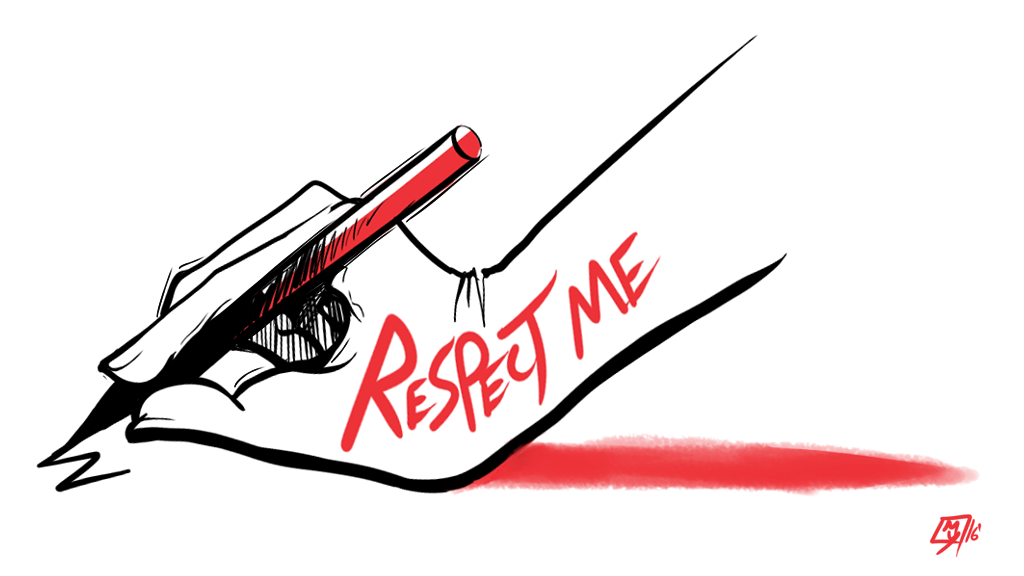On "Think Pieces" and Journalistic Elitism
by Alexander Jones | published Apr. 22nd, 2016
I'm going to cut straight to the point here in the think-pieceiest way possible: I don't appreciate the way we've been talking about think-pieces.
Coined in the late 1930s by Paul W. Ward as a term meant to encapsulate lazy, roundabout journalism, the meaning and our collective use of "think piece" has evolved far beyond its humble beginnings. That's obviously the nature of language, to evolve and adapt to our ever-changing cultural landscape, but forgetting the original context from a term as widespread as "think piece" altogether can be dangerous. Ward and his peers created and bolstered a term like "think piece" because it aptly described the type of poorly reported stories that plagued otherwise credible papers and journals.
This is a sound criticism to make when you're tired of seeing sloppy, overly vague "news stories" sharing page space with articles other journalists slaved day and night over getting 100% accurate. It would be a jarring experience to open the New York Times and be greeted with a headline like, "We Need To Have A Conversation About Syria" or "The Top 15 Things You Should Know Before Moving To Brooklyn." You might feel the same jolt of confusion if you fired up Buzzfeed one morning and were greeted with a hard-hitting, exhaustively reported piece on the Zika virus.
What's so beautiful about our current journalistic landscape, however, is that we have an abundance of creative outlets for young writers. These headlines never need to feel out of place because they have a far better chance of catering to their audience. Those wishing to pursue a career in at-the-scene, breaking news reporting are welcome to apply and/or pitch to the countless, more traditional news outlets still very much in existence. However, there are writers out there – journalistic writers, specifically – who have no interest in being the first on the scene, breaking a story or following a single lede for months at a time. Sometimes young writers, frazzled by the breadth of information they need to process in their day-to-day existence, just want to write. Specifically, they just want to write about the things they care about, or at least are trying to figure out. Personally, I see absolutely nothing wrong with giving them the tools and resources to do so. To me, this is the innate value of the "think piece" in 2016.
There's a pretty hefty opposition to this sentiment, and I'm aware that I'm in a vocal minority here. The problem with this opposition is that their criticisms of think-pieces and what they represent often amounts to petty tongue-lashings toward some sort of vague, faceless enemy, astonishingly spiteful dithering or laughable bitterness. For example, this hilariously pathetic Vice article by Dave Schilling manages to conflate piss-poor satire with terribly considered criticism and creates a terrifying journalistic Frankenstein as a result (it's truly a nightmare to push through as a reader). What I've gathered from pouring over these criticisms in search of something even remotely resembling a sound argument against think-pieces is that they're terrible for a few reasons: they're insubstantial, they're naive and are a product of the "PC generation," and there are just too many of them.
I'll concede on the last point, but I vehemently disagree with the other two. I can understand the argument that there's too many think pieces currently occupying space on the internet because there's probably too much of everything everywhere, given our species' maximalist tendencies. Some think pieces are really, genuinely terrible, just like how terrible pieces of writing exist under all categories. It can be tough to find good, thoughtful think pieces when you're drowning in an ocean of hot takes about Kanye West written by over-caffeinated white children.
The key here is the same one that makes your Facebook, Twitter, Instagram, Tumblr, Wordpress, Medium, etc. experience tolerable: choosing who to follow. If you immerse yourself in bullshit, you're going to live, breathe and think in a world of relentless bullshit. If you curate your online experience to lean toward the people and outlets you respect and take seriously, I can almost guarantee you're going to find yourself reading a lot more think pieces because, chances are, the name of someone whose opinion you value is probably going to be gracing that byline. And who knows, you might just find yourself enjoying what you're reading.
Ultimately, I think the heart of the "think piece dilemma" lies in the simple fact that we've lost our compass in deciding just what exactly think pieces are. It's tragically easy to lash out at and blame a relatively ambiguous concept for everything you think is wrong with contemporary writing and journalism. It's also a copout, reactionary argument that undermines a form of writing that can be endlessly useful for young and aspiring writers.
Ironically enough, Vice recently published an article via their music-centric subsidiary Noisey titled "We Did Not Ask For A Biggie Hologram." It was written by Craig Jenkins, who has essentially become Vice's go-to think piece machine and it's not the best article, but above all else it is unmistakably a think piece from top to bottom. It is less than 1,000 words of Jenkins waxing philosophical about an issue that means something to him. I'm happy he wrote it. I'm even happier someone published it.
Let's stop clinging to the roots of a rose-tinted journalistic ideal and let our medium flourish in new, exciting and often confusing facets. Now, please, give me 1,000 words on why you think I'm full of shit. Believe it or not, I would love to hear your thoughts.



